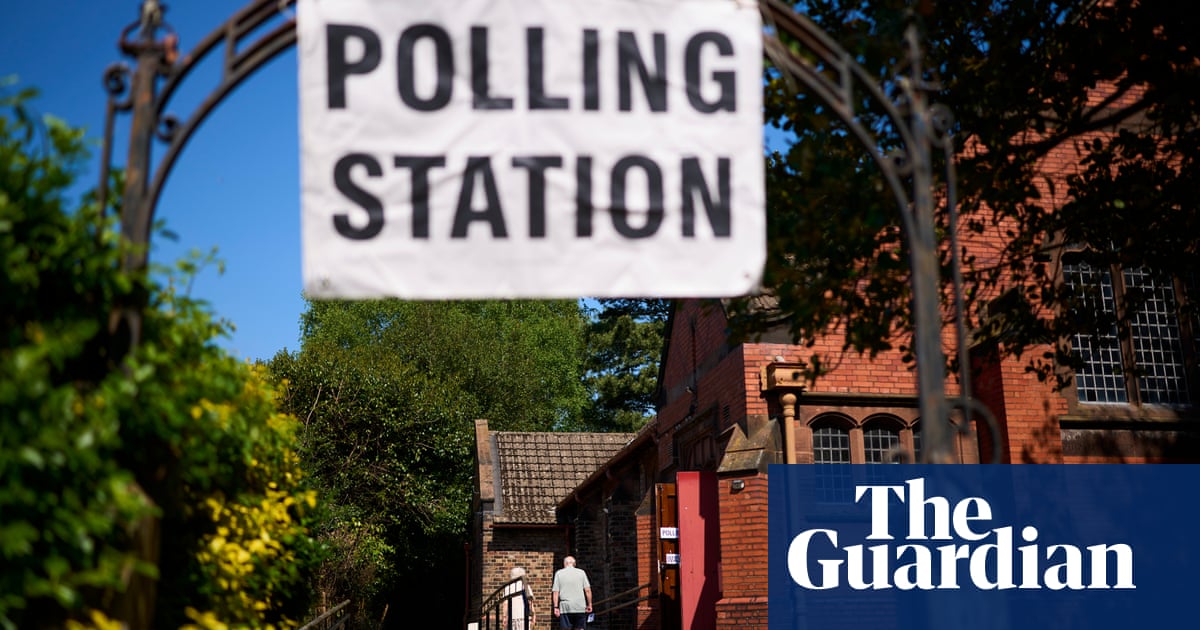Polls have closed acrossEnglandfor local and mayoral elections, as well as a key parliamentary byelection, with the first results due to be announced within hours.
It is the first full-scale electoral test for Keir Starmer since the general election, and could have notable repercussions for Nigel Farage and Kemi Badenoch, as well as to a lesser extent for the Liberal Democrats and Greens.
The elections cover 24 councils across England, as well as six mayoralties and a byelection in the formerly Labour-held seat ofRuncorn and Helsby in Cheshire, which is being closely contested by Reform UK.
The first results, expected at about 2am, will be for two of the mayoral races: North Tyneside, which Labour is expected to hold, and West of England, which was previously held by Labour but is seen as being a close race between Labour, the Greens and Lib Dems.
About an hour later will be perhaps the key result of the night, with voters in Runcorn and Helsby deciding who will succeed Mike Amesbury, the former Labour MP whoresigned afterbeing given a suspended prison sentence for punching a man. Bookmakers have Reform as the favourites to overturn Labour’s near-15,000 majority. Labour officials in the constituency on Thursday said the contest appeared too tight to predict.
Other overnight results will include the mayoralties in GreaterLincolnshire, where Reform is hopeful of taking the newly created post, and Doncaster, which is Labour-held and where the party believes it can win again.
However, the bulk of the council votes will not be counted before Friday morning, with many results not finalised until well into the afternoon.
Results are seen as particularly hard to predict given the atomised polling figures, with Reform, Labour and the Conservatives each recording national support generally between 20% and 25%, and the Lib Dems and Greens not notably far behind.
One thing that does seem certain is that the Conservatives will lose many hundreds of council seats, in part because they did so well in 2021 when the same seats were last contested, amid the brief fillip of Boris Johnson’s “vaccine bounce”.
Sign up toHeadlines UK
Get the day’s headlines and highlights emailed direct to you every morning
after newsletter promotion
A particularly bad night could put new pressure on Badenoch’s leadership of the party, but Conservative MPs say there is minimal chance of any formal challenge to her for now, not least because so many voters expressed distaste at the Tories’ internal divisions in the run-up to last year’s general election.
Starmer can most likely gloss over a modest night in council results, but a Reform win in Runcorn, and in a couple or several of the mayoral races, would set off new jitters in Downing Street.
The Lib Dems and Greens will be hopeful of making gains, but also wary about potential ingress by Reform.
